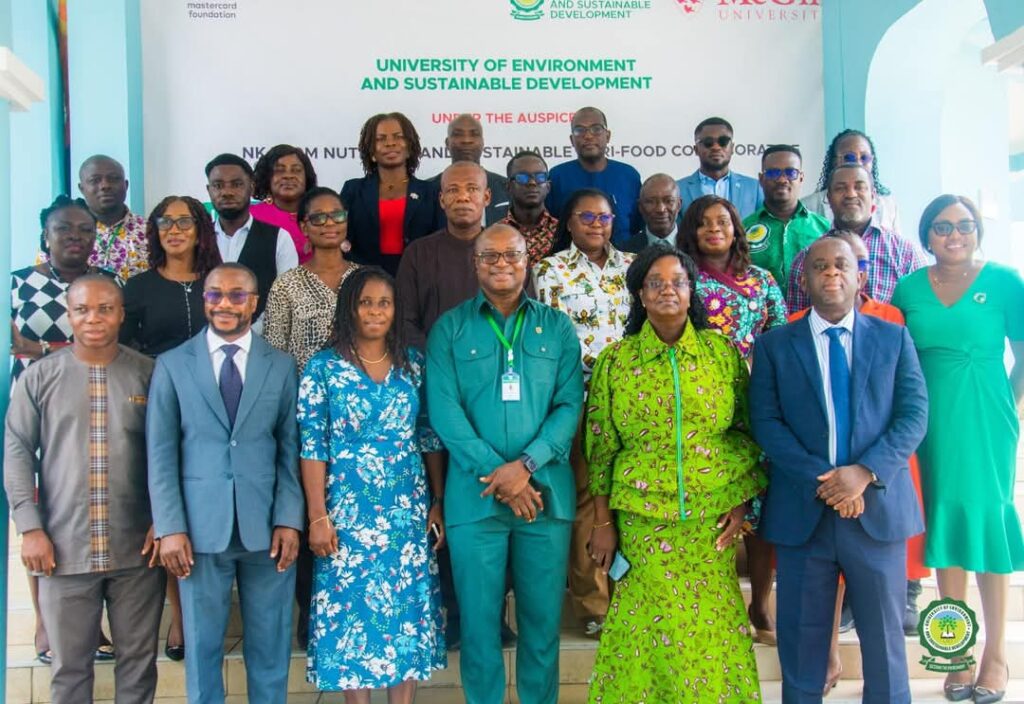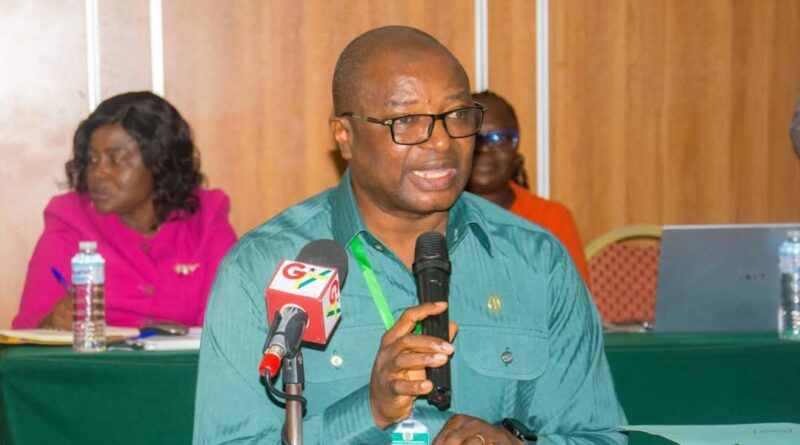Youth Unemployment, Agricultural Waste is the Answer – Prof Eric Nyarko-Sampson
Professor Eric Nyarko-Sampson, Vice Chancellor of the University of Environment and Sustainable Development (UESD) emphasized the importance of recycling agricultural waste, advocating for its transformation into a valuable investment instead of being discarded. He encouraged Ghanaians to explore aquaculture as a means to enhance food security and create job opportunities. His remarks were made during the opening ceremony of a three-day inception workshop on Agro-Waste Management and Aquaculture Technology Entrepreneurship held in Koforidua, Eastern Region.

The Agro-Waste Management and Agricultural Entrepreneurship Initiative, known as the Nkabom Project, is a transformative, multi-stakeholder program designed to address critical challenges in environmental sustainability, agricultural innovation, youth employment, and inclusive development in Ghana. The project focuses on converting agricultural waste into valuable resources, advancing agricultural practices through innovative technology, and fostering sustainable entrepreneurship-driven livelihoods, particularly for youth, women, and marginalized communities. This 10-year initiative aims to create dignified and fulfilling job opportunities for 3 million young Ghanaians by 2030. It is funded by the Mastercard Foundation and supported by partners including Koforidua Technical University, Ashesi University, the University of Health and Allied Sciences, the University of Ghana, Kwame Nkrumah University of Science and Technology, the Association of Ghana Industries, and McGill University in Canada.
Professor Nyarko-Sampson, who also serves as the principal investigator of the Nkabom Project, noted that it aligns with the university’s core objectives and presents an opportunity to provide expert training and education in agro-waste management throughout the country. He announced that the university plans to introduce academic programs focused on effective agro-waste management by the end of the year.
“This project is crucial for us as a university. It aligns perfectly with our vision and mission to be a center of excellence for gathering and disseminating knowledge about the environment. It enables us to conduct research on managing agro-waste and developing products that will benefit the community. The Eastern Region contributes about 40% of the nation’s inland fishing needs, positioning us well to train individuals and provide skills that will support our programs,” he stated.
Professor Edward Wiafe Debrah, Pro Vice-Chancellor of UESD and principal coordinator of the Nkabom Project, highlighted that the initiative will generate employment opportunities for Ghanaians by equipping them with skills to add value to agro-waste. “We will enhance the value of agricultural waste for those who feel they have no employment options. Wherever we find agro-waste, we will reach out to communities and train individuals to convert it into useful products as we launch the program. We will recruit community members in batches, welcoming everyone regardless of race, tribe, or physically challenged; we have facilities for all.”
The inception workshop is a crucial step toward achieving the objectives of the Nkabom Project, with expectations that its outcomes will serve as a model for agro-waste transformation and agricultural innovation in Ghana and beyond.

